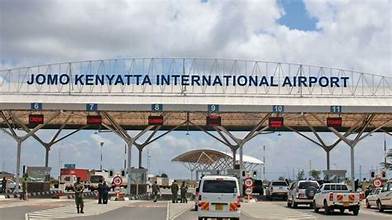In recent years, Kenya has attracted attention from international investors seeking to participate in the country’s burgeoning economy. One such potential investor is the Adani Group, an Indian multinational conglomerate with interests spanning various sectors, including energy, logistics, and infrastructure. This article will delve into the dangers of Kenya hiring Adani as an investor in airport management.
While the prospect of collaborating with a company like Adani may seem appealing, there are several dangers and concerns associated with allowing them to manage Kenya’s airports.
1. Reputation and Controversies
The Adani Group has faced significant scrutiny and controversy over the years. Accusations of environmental degradation, questionable land acquisitions, and labor violations have marred its reputation. Allowing a company with such a contentious background to manage critical infrastructure like airports may lead to public backlash and damage Kenya’s international standing. This could deter other potential investors who prioritize corporate responsibility and ethical practices.
2. Environmental Concerns
One of the primary areas of concern with the Adani Group is its environmental record. Projects associated with Adani have often been criticized for their ecological impact, particularly in relation to climate change and biodiversity. In a country like Kenya, which is heavily reliant on its natural beauty for tourism, entrusting airport management to a company with a history of environmental negligence could lead to disastrous consequences for both the environment and the economy.
3. Economic Dependence
Engaging a foreign company like Adani to manage airports could lead to an over-reliance on external entities. This dependence might stifle local expertise and limit the growth of domestic firms in the aviation and logistics sectors. Furthermore, if the Adani Group encounters financial difficulties or pulls out of the project, it could leave Kenya with significant gaps in airport management and operations, jeopardizing the nation’s connectivity and economic stability.
4. Potential for Corruption
Corruption is an ongoing issue in many sectors in Kenya. The entry of a large foreign investor like Adani raises concerns about potential corruption, especially regarding contract negotiations and project execution. There could be temptations to cut corners, overlook local regulations, or engage in practices that undermine fair competition. Ensuring transparency and accountability in such arrangements is crucial, yet often challenging.
5. Impact on Local Employment
While foreign investment can create jobs, there is also a risk that local employment opportunities may be limited. The Adani Group may bring in its own workforce for specialized roles, sidelining local talent and reducing the overall benefit to the Kenyan economy. This could foster resentment among the local population, undermining the social fabric and leading to potential unrest.
6. Strategic National Interests
Airports are critical infrastructure for any nation, serving not just as transportation hubs but also as strategic assets. Entrusting this responsibility to a foreign entity could raise national security concerns. In times of geopolitical tension, the interests of a multinational corporation may not align with Kenya’s national interests, potentially compromising the country’s security and operational sovereignty.
7. Regulatory Challenges
The presence of a large foreign investor in airport management could complicate regulatory oversight. There may be challenges in ensuring that international standards and local regulations are met, especially if there is a lack of expertise or resources within Kenyan regulatory bodies. This could lead to lapses in safety, security, and efficiency.
Conclusion
While foreign investment can play a vital role in Kenya’s development, the potential partnership with the Adani Group raises significant concerns. From environmental implications to the risk of corruption and impacts on local employment, the dangers associated with hiring Adani as an airport management investor warrant careful consideration. Kenya must weigh the potential benefits against these risks, ensuring that any agreements align with the country’s long-term interests and values. Engaging in thorough due diligence and maintaining a focus on local empowerment will be essential in navigating this complex landscape.


We need to sober up and stand up for ourselves as a nation. Leaving this nation to promax looters is going to leave us in an retractable ditch.
How legit is Adani